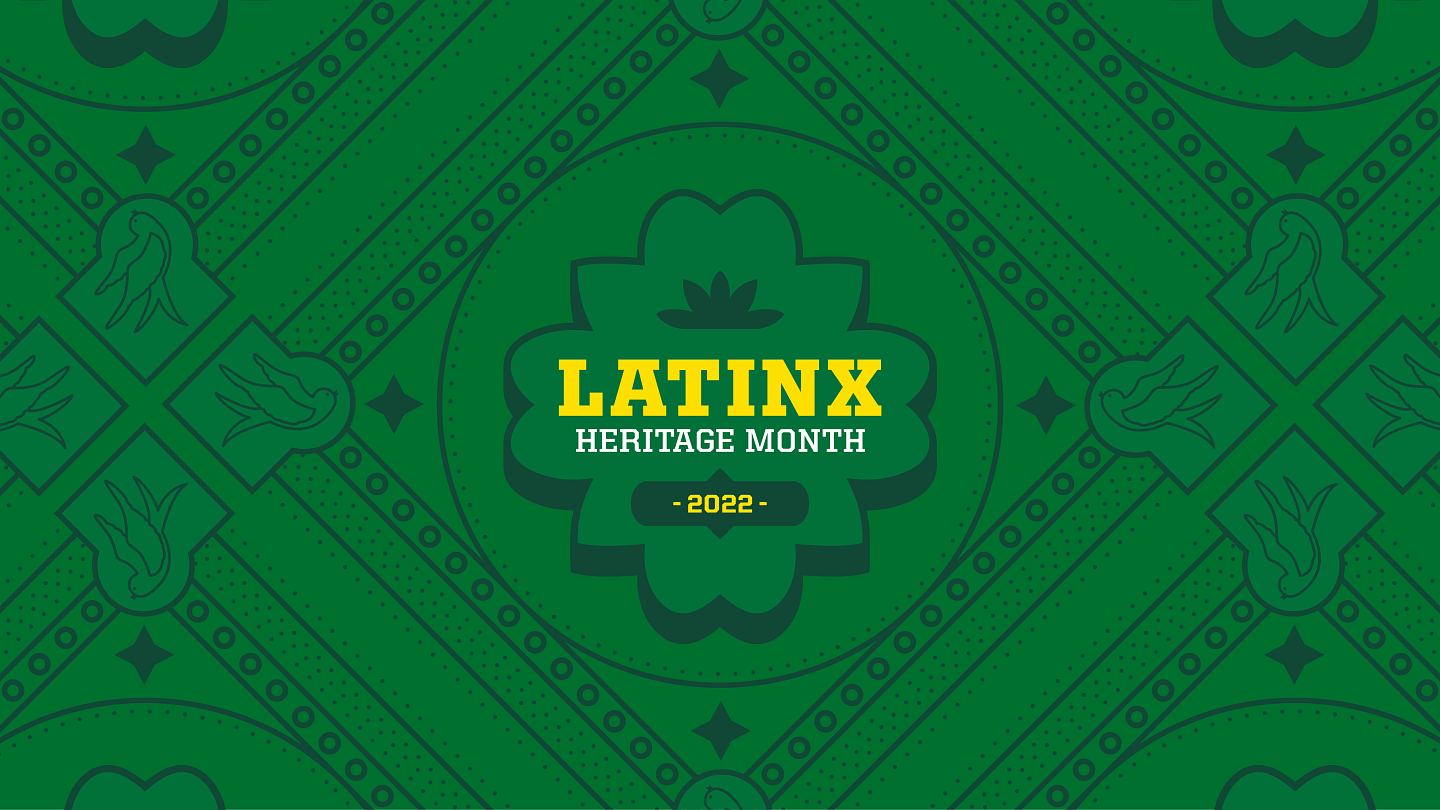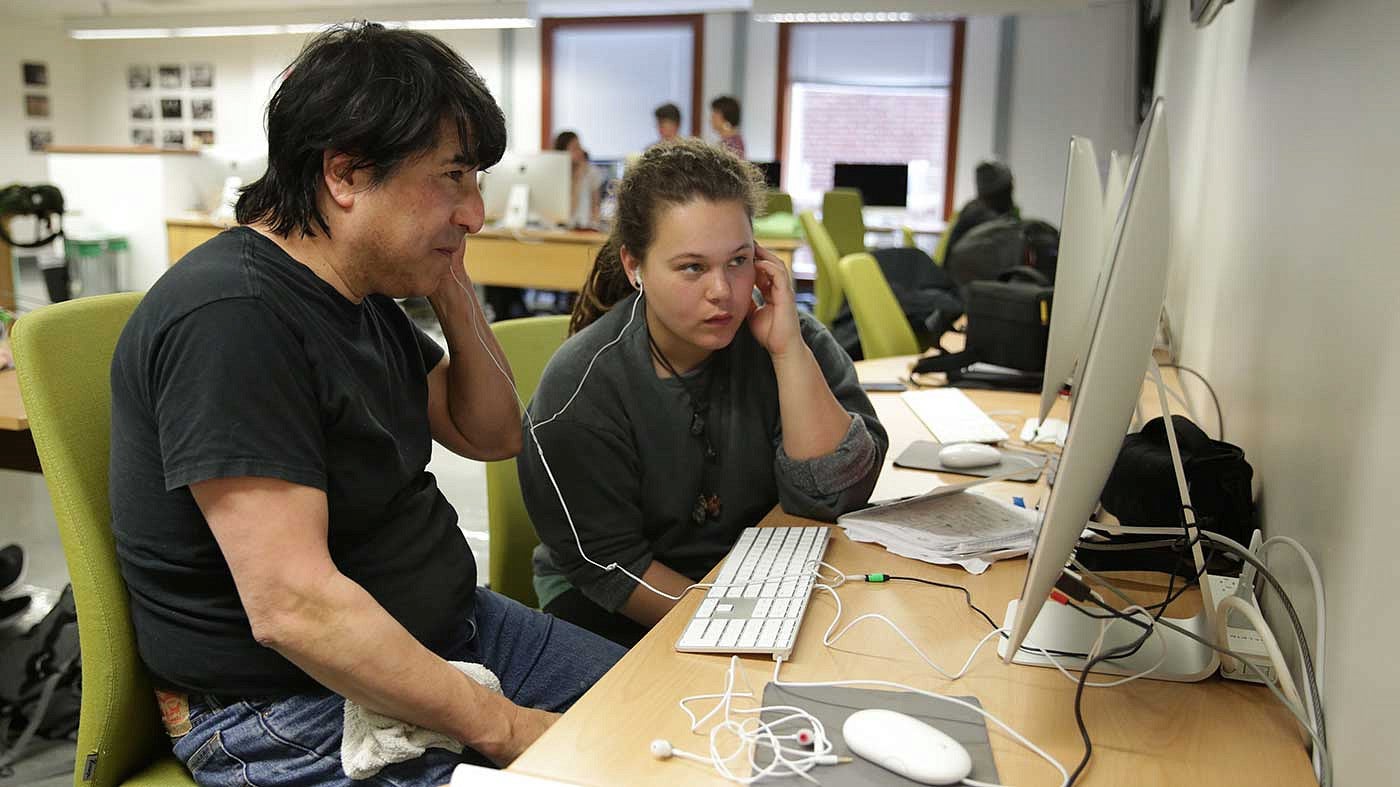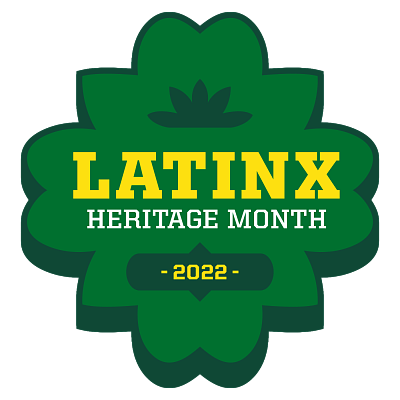
Celebrated from September 15 to October 15, Latinx Heritage Month or Hispanic Heritage month (official government designation) honors the contributions and importance of Latina/o/x Americans. It is a time to celebrate the many diverse cultures of people with heritage from Mexico, the Caribbean, South and Central America, and Spain.
Here at the University of Oregon there are many opportunities for students to make connections and find community, including clubs, associations, the Latinx Studies program, and for first-year students, the Latinx Academic Residential community (ARC).
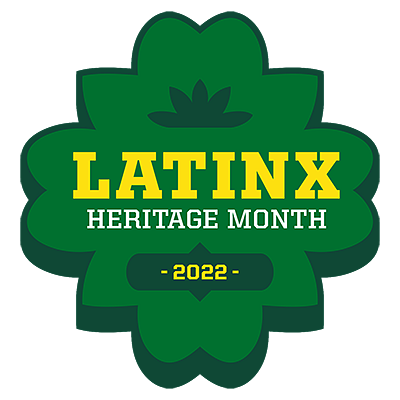
For the whole campus community, there are ample opportunities to learn more about the linguistic, cultural, and academic contributions Latinx people have made—and continue to make—to our university, city, state, and nation.
According to Audrey Lucero, associate professor in sociocultural studies in education and director of the Latinx Studies program, the Latinx minor is growing. Now in its third year, the number of students has doubled.
“The minor began in fall 2020, and so far, 51 undergrads have declared it, including ten who were able to add it late in their undergraduate career and have already graduated,” she says.
“Our goals for the coming year are to get more students involved in research opportunities through our LTNX Studies Experiential Learning Fellowships, and to do more outreach to local high schoolers who may be interested in Latinx Studies,” she says. “We also hosted out first SAIL camp this summer, and it was a big success.”
The Latinx ARC (Comunidad de Latinx Scholars) fosters cross-cultural understanding through a positive and supportive space for first-year students, helping them ease their transition into college life at the UO. The ARC, which started in 2019, stemmed from the advocacy of members of the Latinx Strategy Group who developed a proposal addressing the need for community-building among undergraduates who identified as Latina/o/x. It continued to operate throughout the pandemic, serving as a major social and academic support for first-year students.
Although building and sustaining community was a major challenge during COVID, Lucero says more in-person events are being planned to bring the community back together on a more regular basis.
Latina/o/x Representation at the UO
The number of Latina/o/x faculty members and employees at the University of Oregon has almost doubled in the last 20 years.
Over that same period of time, the number of Latina/o/x undergraduate students has more than tripled.
Making space for community
It’s not every day the Hispanic Public Relations Association (HPRA) awards a $5,000 scholarship. But when their team met School of Journalism and Communication senior and public relations major Jocelyn Valencia-Chavez, they knew she was an ideal first recipient for their new national scholarship.
Valencia-Chavez is the co-founding president of Unidos, the new UO student chapter of the Hispanic Public Relations Association and only the second chapter in the United States. HPRA’s scholarship recognizes her commitment and leadership in expanding Hispanic representation in public relations at the University of Oregon.
HPRA was established in 1984 by a group of Hispanic public relations practitioners who believed that an organization dedicated to serving their needs and interests was the most effective way to promote professional advancement in the field. Similarly, Valencia-Chavez and her co-founding president Edna Ventura ’22 wanted to build a comunidad that made them feel a sense of belonging and connection in the field of public relations and at the UO.
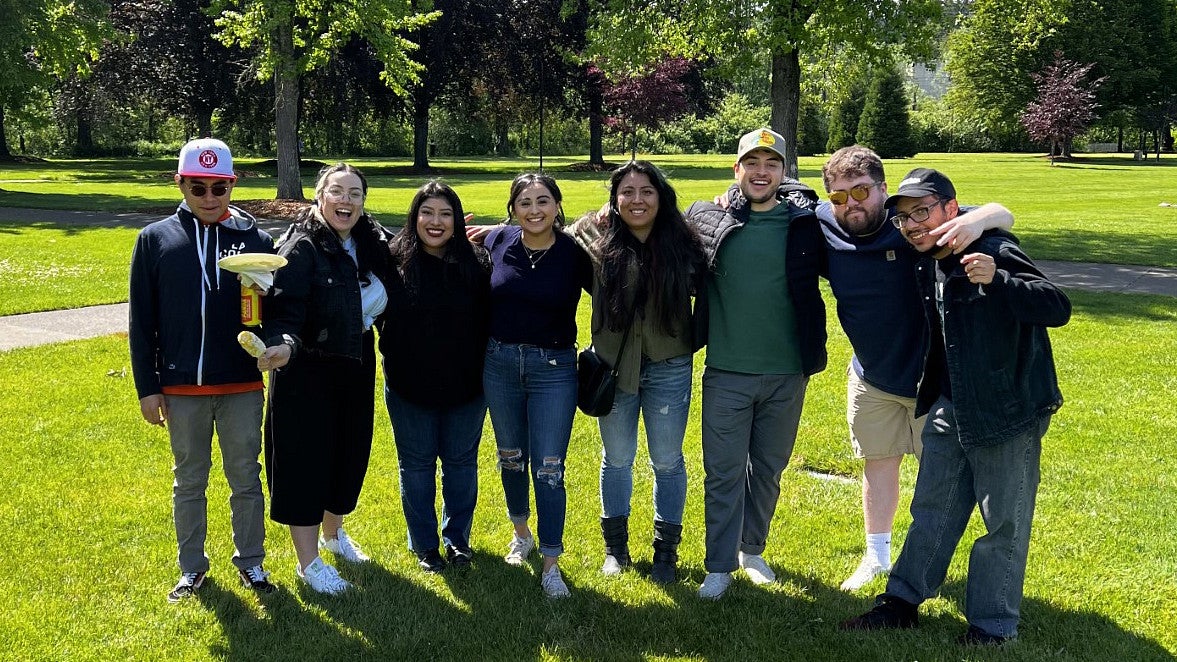
The two SOJC students founded Unidos in 2021 to support the development of public relations pre-professionals and take up space in a way they didn’t always feel they could. It felt especially important after going to school during a global pandemic.
Valencia-Chavez, who was born in Northern California and raised in Southern Oregon, is the child of first-generation Mexican immigrants. She received her associate degree from Umpqua Community College, where she was a volleyball student athlete. Her love of storytelling and ability to turn ideas into concrete actions made public relations a great fit for her. When she graduates in 2023 from the UO, she plans to pursue public relations with a focus on Hispanic / Latine / BIPOC / LGBTQIA+ communities, mental health, and higher education.
“I’m so excited for and proud of Jocelyn,” said Associate Professor Dean Mundy, director of the public relations program. “She is such an amazing ambassador for the UO and SOJC. HPRA’s recognition of her work is very well deserved and is an amazing national honor.”
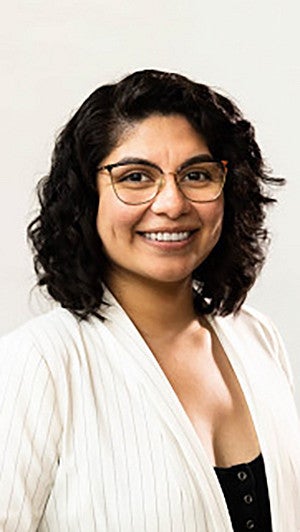
Ixchel Verdugo
(she/her/ella)
Multicultural Academic Counselor and Latine/Chicane Retention Specialist, Center for Multicultural Academic Excellence (CMAE)
Ixchel is a double Duck with a bachelor’s degree in educational foundations and a minor in ethnic studies, and a master’s from UOTeach in curriculum and teaching. Before jumping into advising, she was a first-grade teacher in the 4J School District and an assistant teacher in the Migrant Education Program. From there she went on to work at the University Career Center and the College of Education before joining the CMAE.
Her diversity, equity, and inclusion roots run deep—thanks to her family she had the opportunity to be a part of marches and demonstrations from a very young age, which gave her a whole new outlook on the challenges and successes of her community.
“Because I was successful in my own undergraduate journey due to amazing Latine/Chicane advisors, I am super excited to pay that forward now in my new role as multicultural academic counselor and Latine/Chicane retention Specialist. One of my biggest goals this year is to continue connecting Latine/Chicane students with as many resources as possible and give them the opportunity to thrive in their own way. Every student deserves to have a success team that makes them feel supported and cared for, which is exactly why I am here and doing the work that I do.”
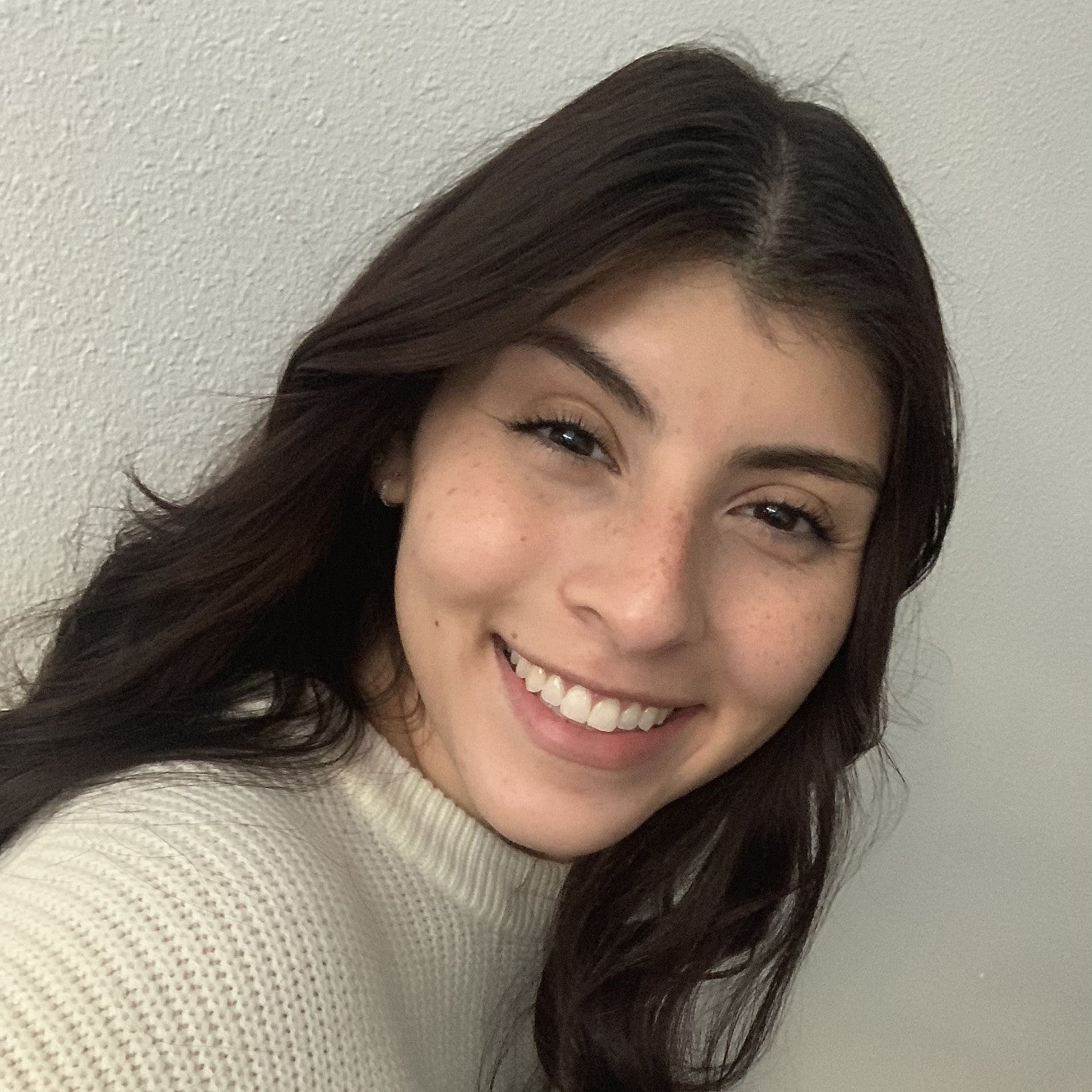
Monique Falcon
Class of 2024
Major: sociology
Hometown: Clovis, California
Being a Latinx student here at the UO has been both challenging and rewarding. I started my freshman year during the peak of the COVID-19 pandemic and found it extremely hard to not only socialize with people in the same year as me but also socialize with people that came from the same background too.
Finishing up my first year, however, I became a student ambassador for the Latinx Program where I began to meet more of my community and explore the different amazing programs and clubs like MEChA, Muxeres, and many more groups for Latinx-identifying individuals. Being a student ambassador for this program and also minoring in Latinx Studies has not only made me feel more accepted at the UO but also has allowed me to work to create a more welcoming environment on campus for the present and incoming Latinx students. I absolutely love being able to bring my community together to create a sense of home away from home here at the university.
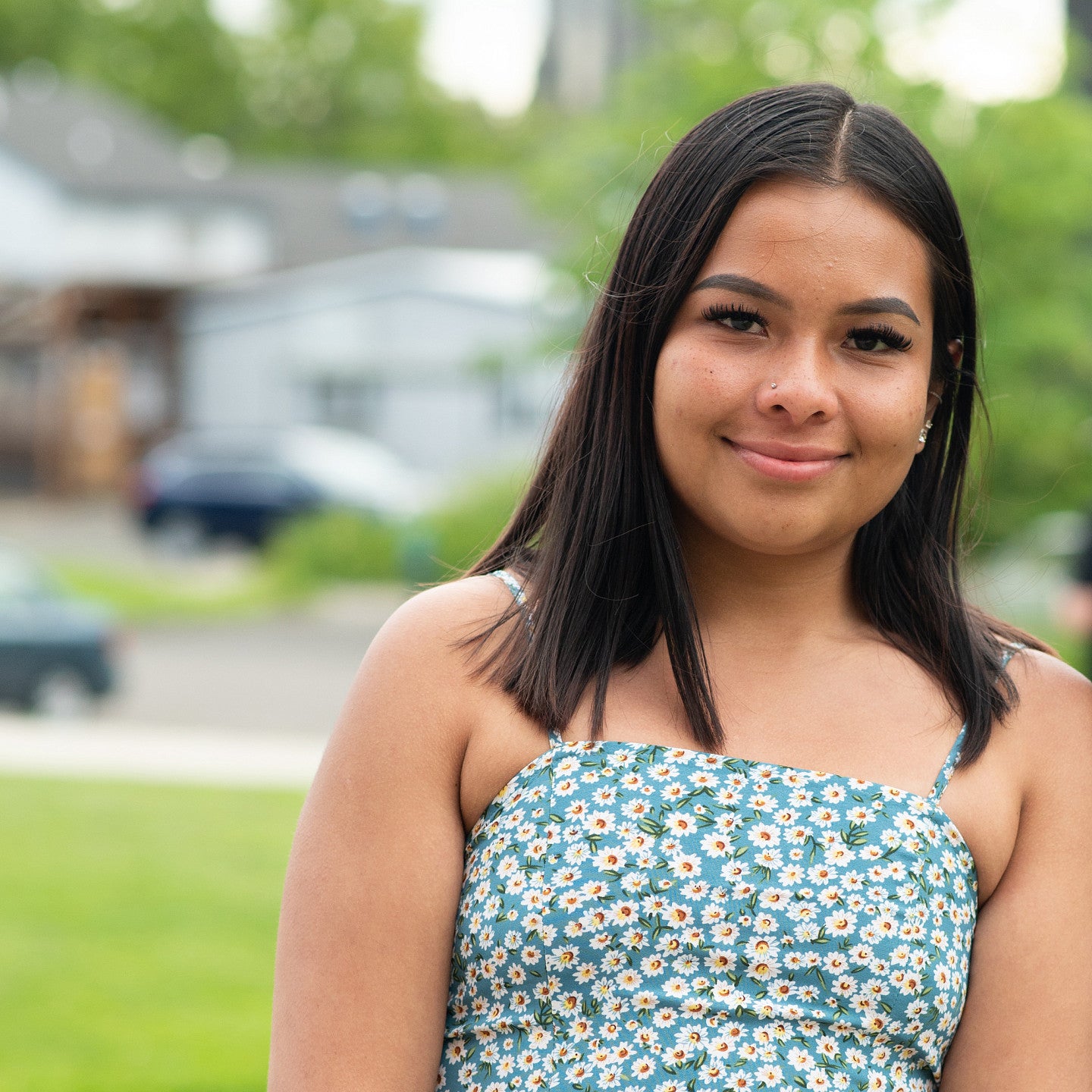
Naiva Vargas Garica
Class of 2024
Major: family and human services, Spanish
Hometown: Independence, Oregon
My overall experience as a Latinx student here at UO has been amazing. From the beginning I was afraid that I wouldn’t find people that looked like me, but I started reaching out to student organizations such as the CMAE and MCC where I found other students who have similar experiences. My first year I lived in the dorms where the Latinx arc was at, so I was able to meet other Latinx students.
My advice for incoming Latinx students is, don’t be afraid to reach out to multiple student organizations, attend multiple clubs or events. You aren’t obligated to keep attending these events, therefore try as many as possible until you find the ones that fit you.
el Día de los Muertos celebration
Save the Date: November 1 and 2, 2022
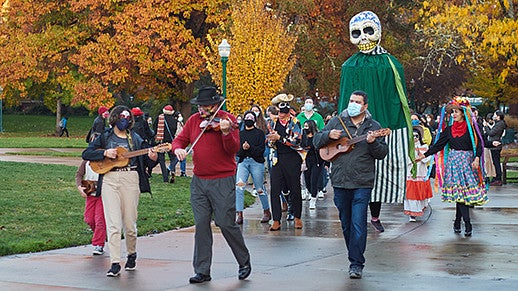
The UO’s Jordan Schnitzer Museum of Art, Oak Hill School, MEChA de UO, and Adelante Sí invite you to the 41st annual celebration of el Día de los Muertos on November 1 and 2, 2022.
In Mexico, when the souls of the dead return to this world for a few brief hours each year, they are welcomed with a feast of all the foods and drinks that pleased them in life. It is a festival, neither somber nor macabre, which is universally celebrated and much enjoyed as a time of family and community reunion.
Guests are invited to join the Día de los Muertos procession through the UO campus beginning at 5:30 p.m.
At 6 p.m., experience a traditional celebration with performances by Los Musiqueros, dancing by Ensamble Identidad y Folclor, and an art exhibition by Grabadores Guanajuatenses. The ofrendas (alters) will be on view to the public from October 26 through November 2.

Campus Resources
Community Resources
“One of my biggest goals this year is to continue connecting Latine / Chicane students with as many resources as possible and give them the opportunity to thrive in their own way. ”
Ixchel Verdugo, Center for Multicultural Academic Excellence (CMAE)

Celebrando a los exalumnos
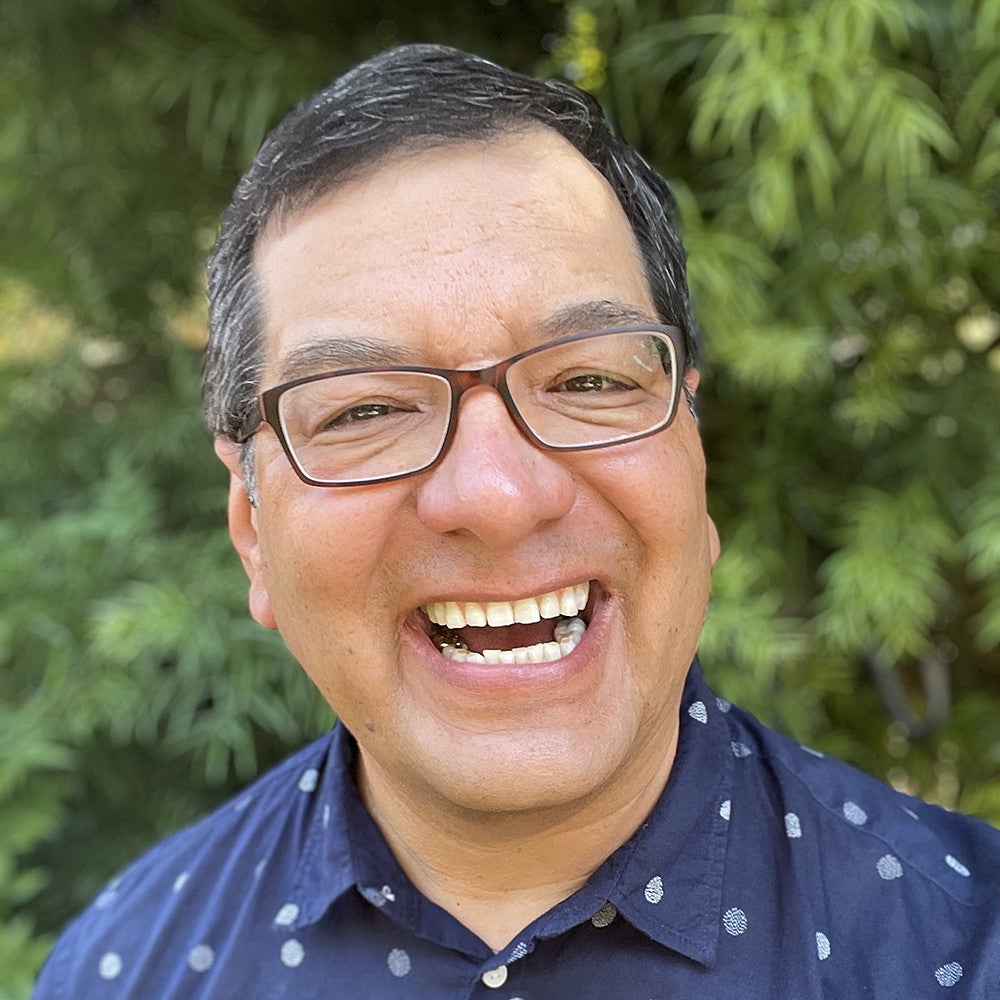
Humberto Chacon, BA ’87 (psychology)
Customer Success and Business Development Executive, Canopy Wellbeing
"One thing that’s great about having an O for our university’s symbol is that it reminds me that I have a circle of U of O friends. The close friends that I made at Oregon have meant so much to me over the years. They have been a key part of my mental health, especially during the pandemic. As my abuelita told me: ‘Friends are good medicine.’ I am grateful for what I learned at Oregon and for the connections that have boosted my happiness and wellbeing."
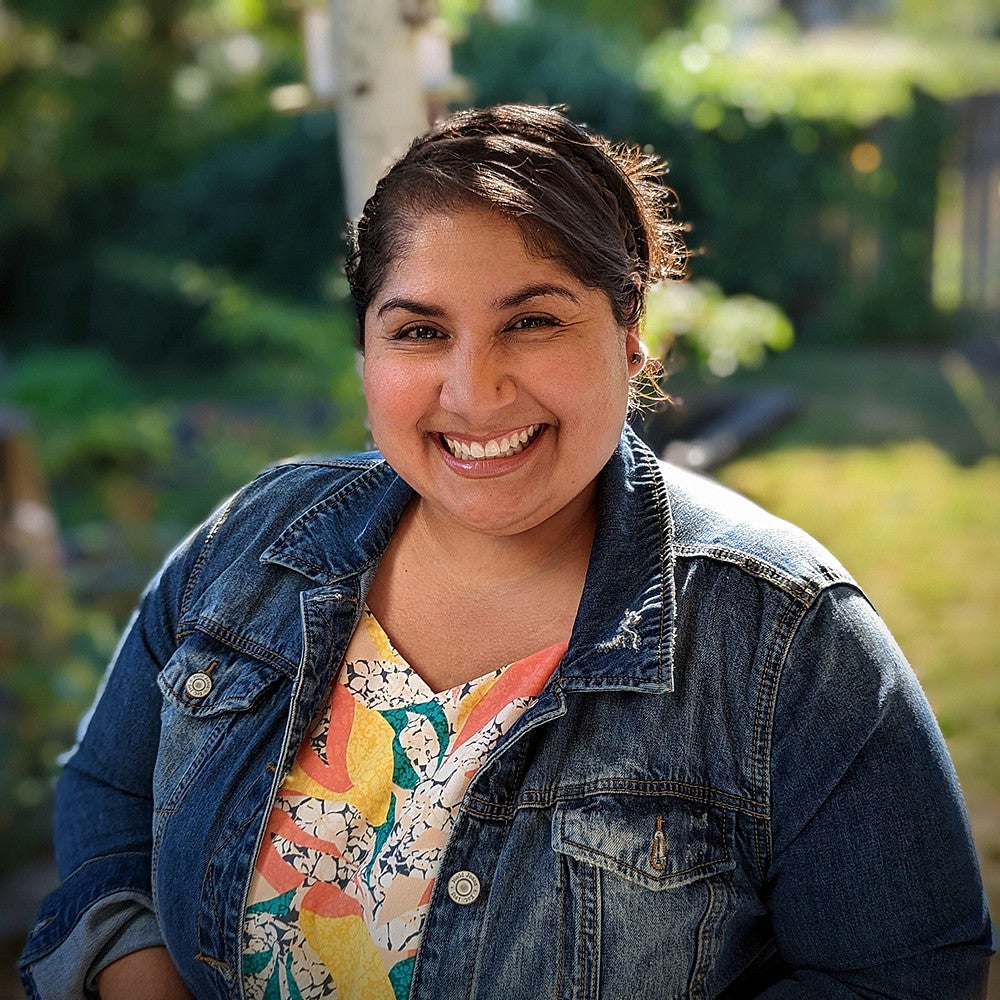
Jessica Lloyd, BS ’05 (economics)
Technical Manager, FinTech
"I am a first-generation college student from a hometown of 1,000. I knew no other Latinos besides my extended family. Oregon empowered me. I felt seen for my unique features, my voice, and how incredibly smart I really was instead of the color of my skin. Student unions were such a special, safe space to ask naïve questions without judgment. It completely shaped how I interact with anyone professionally or personally knowing and accepting everyone’s story and unique qualities."
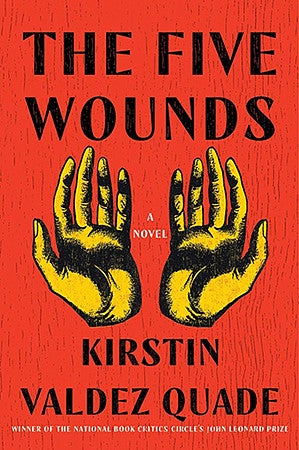
Check out these reading recommendations from the UO Alumni Association.

Recent books from the UO faculty
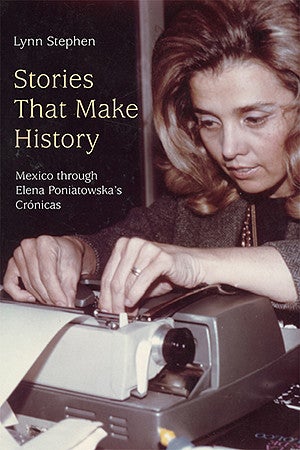
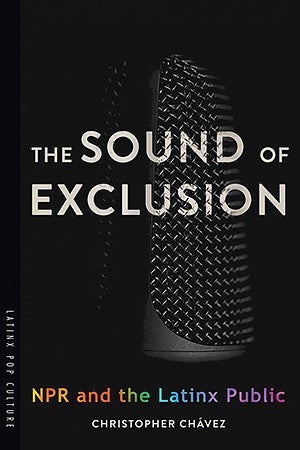
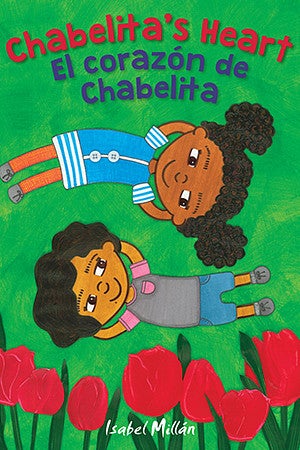

Stories That Make History: Mexico through Elena Poniatowska’s Cronicas
by Lynn Stephen, Philip H. Knight Chair and professor of anthropology
From covering the massacre of students at Tlatelolco in 1968 and the 1985 earthquake to the Zapatista rebellion in 1994 and the disappearance of 43 students in 2014, Elena Poniatowska has been one of the most important chroniclers of Mexican social, cultural, and political life. In Stories That Make History, Stephen examines Poniatowska’s writing, activism, and political participation, using them as a lens through which to understand critical moments in contemporary Mexican history. (Duke University Press, 2021)
The Sound of Exclusion: NPR and the Latinx Public
by Christopher Chávez, CLLAS director and associate professor in the School of Journalism and Communication
As a network that claims to represent the nation, NPR asserts unique claims about what it means to be American. In The Sound of Exclusion, Chávez critically examines how National Public Radio conceptualizes the Latinx listener, arguing that NPR employs a number of industry practices that secure its position as a white public space while relegating Latinx listeners to the periphery. (University of Arizona Press, 2021)
Chabelita’s Heart
by Isabel Millán, assistant professor of women's, gender and sexuality studies
With the support of family and the reflection of important role models, Chabelita’s Heart shows two kids as they grow into themselves and understand that “girls can like girls.” Experiences of immigration / deportation, indigenous eco activism, Mexican LGBTQ activism, as well as Chicanx, Mexican, and Honduran culture provide important context that highlights the intersectionality of LGBTQ people, in this heartwarming tale of a first crush. (Reflection Press, 2022)
Alberto Flores Galindo: Utopía, historia y revolución
by Carlos Aguirre, professor of history, with Charles Walker
Carlos Aguirre, UO professor of history specializing in the history of modern Peru and Latin America reviews central aspects of the work and life of the Marxist Peruvian historian Alberto Flores Galindo (1949–1990), including his role as a public intellectual, his views about Peruvian independence, his interpretations of political violence in the 1980s, his relationship with the Cuban revolution, and the way in which his passion for literature infused his work as a historian. (Lima, La Siniestra Ensayos, 2020)


